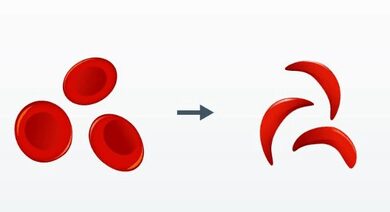Urea-to-Creatinine Ratio: Checking Kidney Health
Introduction
Did you know that your kidneys are each about the size of your fist? And even though they are small, they play a pivotal role in filtering waste and excess water from your blood. Healthy kidneys clean about half a cup of blood every minute. They take out waste and extra water to make urine. This helps maintain the water and mineral balance in the body, thus regulating your blood pressure. Kidneys also have a hormonal function, aiding in the development of red blood cells and keeping your bones and muscles healthy. Hence, keeping them healthy is importantfor your overall well-being.
Two important substances that your kidneys regulate are urea and creatinine. Comparing their levels in your blood through the urea-to-creatinine ratio is a straightforward but important method for evaluating kidney function. In this article, we will explore the urea-to-creatinine ratio in detail and how it can provide insights into your kidney health.
Understanding Urea and Creatinine
Before getting into what this ratio means, let us discuss what urea and creatinine are.
Urea is a byproduct formed when the body breaks down proteins synthesized by the liver, and is transported through the bloodstream to the kidneys for removal. BUN or blood urea nitrogen measures nitrogen in urea present in blood. BUN levels are commonly checked if a kidney dysfunction is suspected by your doctor. Creatinine is another waste product arising from the regular breakdown of muscle tissue. Healthy kidneys filter out urea and creatinine from the bloodstream, allowing them to be excreted in urine. When kidney function is weakened, these substances can accumulate in the blood.
Renal Function Assessment
Kidney or renal function tests are usually done to detect kidney problems, see how your kidneys respond to treatment and assess if kidney disease is getting worse. Your doctor might ask for different tests to check your kidneys. The renal function blood tests usually measure the BUN, eGFR (estimated glomerular filtration rate), and creatinine levels.
Although BUN levels in the blood may show alterations with physiologic changes and diet, blood levels of creatinine typically stay consistent. Combining these two parameters serves as avaluable indicator of kidney performance. Doctors can detect kidney issues before they become serious by watching these levels. It’s especially important for people who already have kidney problems or diabetes. This way, they can get help and manage the problem in time.
Significance of Urea-to-Creatinine Ratio in Evaluating Kidney Health
Urea-to-Creatinine Ratio also known as BUN to creatinine ratio(BUN/Cr) is found by dividing the BUN value by the creatinine value, which should normally fall between 10:1 and 20:1. Since the body makes creatinine slowly, its levels in the blood rise slowly compared to urea when the kidneys are damaged. Thus, this ratio forms a useful tool in assessing acute and chronic kidney disease and monitoring kidney dysfunction.
Here’s what can be indicated if there is an imbalance in the ratio:
The urea-to-creatinine ratio is also used in assessing kidney function in specific conditions, such as preeclampsia (a condition characterized by high blood pressure and often protein in the urine) in pregnancy. In a study conducted in pregnant women with preeclampsia, the ratio of BUN to creatinine was found to be much higher compared to the control group, indicating kidney-related problems in such cases.
Thus, this ratio can provide a good insight into how your kidneys are working, and can even detect some extrarenalissues.
If you have symptoms of kidney disease such as persistent pain, fatigue, nausea and vomiting, loss of appetite, swelling in legs or around the eyes or other symptoms that are lasting, call your doctor immediately. Your doctor will usually get your kidney function tested and guide you appropriately in case your BUN/Cr ratio levels are altered.
Preventing and Managing Kidney Diseases
Now that you understand BUN/creatinine levels can indicate kidney issues, here are a few ways to ensure you have proper levels:
Make sure you consider discussing openly about your kidney health with your healthcare provider. Since early kidney disease might not show symptoms, undergoing tests is crucial to ensure your kidneys are in good condition. Once you voice your concerns, your healthcare provider will determine the appropriate frequency for testing.
Conclusion
Your kidneys play a crucial role in keeping you healthy by filtering waste from your blood. Monitoring their function through tests like the urea-to-creatinine ratio is important for detecting any potential issues early on. By adopting a healthy lifestyle, including nutritious eating, regular physical activity, stress management, and adequate sleep, you can support your kidney health. Don’t hesitate to discuss any concerns about your kidneys with your doctor, as early detection and management are key to maintaining kidney health.





